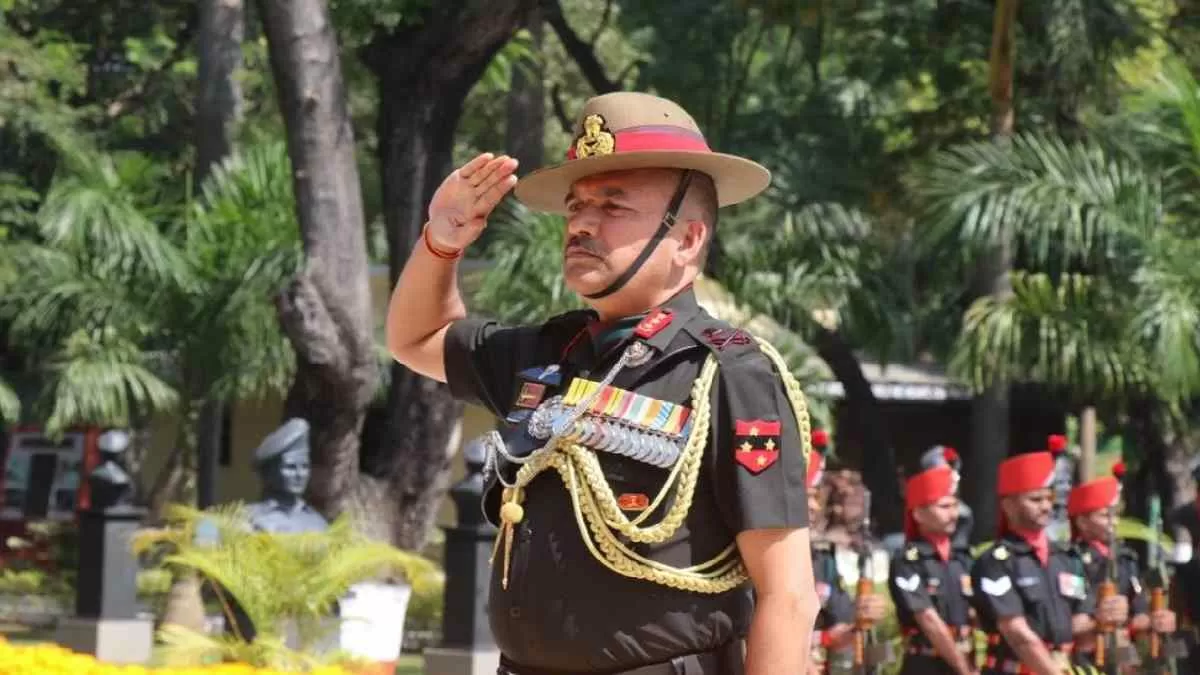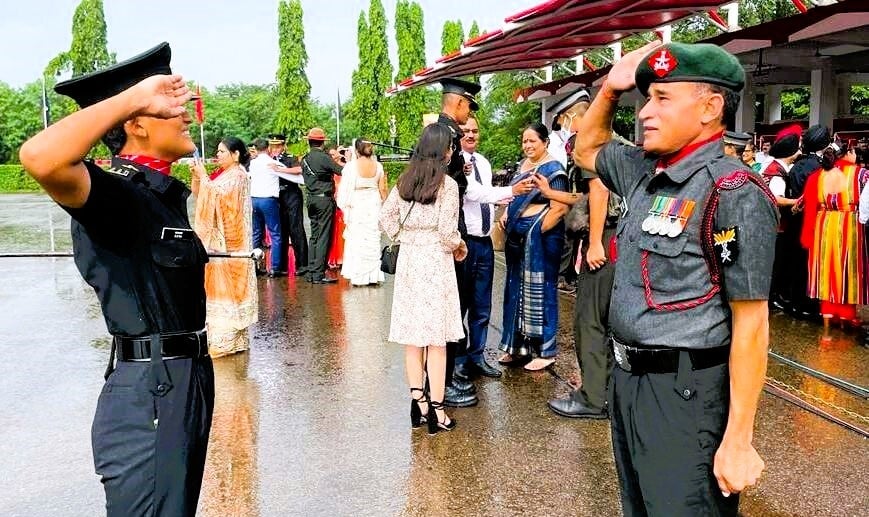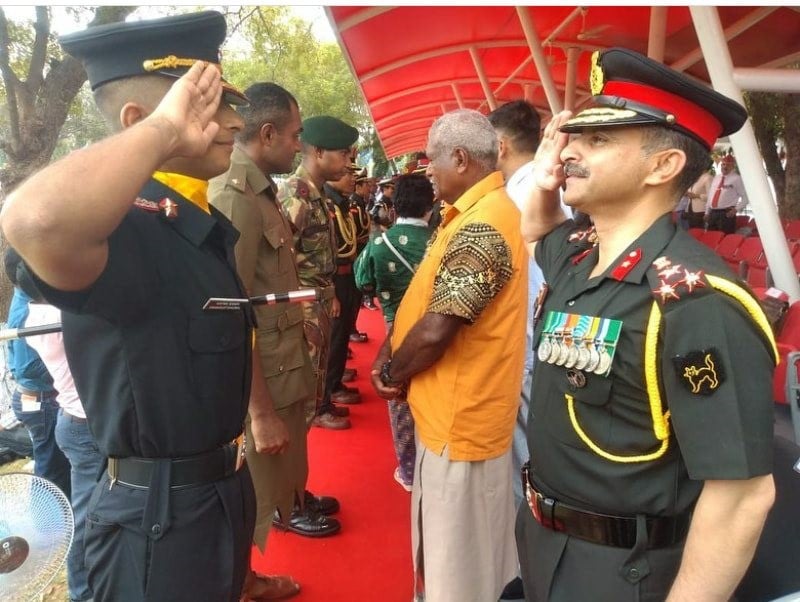The journey toward a career in the military or law enforcement is often steeped in deep-rooted values and traditions. For many aspiring defence aspirant, the image of saluting a parent—especially a father or grandfather who has donned the uniform—is not just a dream; it’s a profound aspiration that encapsulates respect, honor, and legacy.
This moment symbolizes a connection to family history and a commitment to serve, driving many individuals to pursue careers in these esteemed fields.
Also Read | 5 Proven Methods to Enhance Your Focus
The Legacy of Service
Family Traditions
The influence of familial ties on career choices is significant, particularly in the military and law enforcement sectors. Many defence aspirants find themselves inspired by relatives who have served, creating a lineage of duty and sacrifice. This tradition often manifests in:
- Stories of Valor: Family members recounting their experiences can ignite a sense of pride and responsibility in younger generations.
- Cultural Significance: Serving in the military or law enforcement can become a cherished family tradition, passed down through generations.
- Role Models: Aspiring officers frequently look up to their relatives as role models, motivating them to follow suit.
The Symbolism of Saluting
The act of saluting carries immense weight. For many, it represents:
- Respect: A salute is a gesture of honor, acknowledging the sacrifices made by those who served before.
- Commitment: It signifies a personal pledge to uphold the values of duty, integrity, and service.
- Continuity: Saluting a parent or grandparent symbolizes the continuation of a proud family legacy.
Personal Aspirations vs. Family Expectations
The Balance of Influences
While familial inspiration plays a crucial role, it’s essential for aspirants to carve their own paths. This balance can be challenging but is vital for personal fulfillment:
- Individual Values: Each candidate must reflect on their motivations and values to ensure that their decision aligns with their personal aspirations.
- External Pressure: The weight of family expectations can sometimes overshadow personal desires, leading to internal conflict.
- Finding a Path: Aspiring officers should strive to integrate their family’s legacy into their own goals, creating a unique narrative that honors both personal and familial aspirations.
The Importance of Self-Discovery
Embarking on a military or law enforcement career should be rooted in self-discovery. Considerations include:
- Assessing Interests: Understanding personal interests and skills can lead to a more fulfilling career.
- Exploring Opportunities: Engaging in various activities related to defence services can help clarify one’s passion.
- Setting Goals: Establishing clear, personal goals will help aspirants navigate their path with confidence.
The Emotional Weight of the Dream
Pride and Honor
The emotional resonance of saluting a parent is profound. This moment is often filled with:
- Joy: The pride of achieving a lifelong dream can be overwhelming.
- Gratitude: Acknowledging the sacrifices made by family members creates a deep sense of appreciation.
- Validation: Successfully joining the ranks of those who served can validate years of hard work and dedication.
The Role of Mentorship
Mentorship plays a crucial role in shaping the aspirations of defence candidates. Relationships with mentors can provide:
- Guidance: Experienced individuals can offer invaluable advice on navigating the challenges of a military or law enforcement career.
- Support: Emotional and practical support from mentors can help aspirants stay focused on their goals.
- Networking: Connections made through mentorship can open doors to opportunities within the defence community.
Also Read | What Does the Baton Represent for Indian Army Officers?
The Path to Service
Preparation and Training
Preparing for a career in the military or law enforcement involves rigorous training and education. Key components include:
- Physical Fitness: Maintaining peak physical condition is essential for success in these demanding fields.
- Education: Pursuing relevant educational opportunities can enhance knowledge and skills.
- Skill Development: Engaging in training programs, workshops, and simulations helps build essential competencies.
Overcoming Challenges
The journey to becoming a defence professional is not without its hurdles. Common challenges include:
- Rigorous Selection Processes: Candidates must navigate stringent recruitment processes that test their mental and physical limits.
- Balancing Commitments: Juggling personal life, education, and training can be overwhelming.
- Resilience: Developing mental fortitude is crucial for overcoming setbacks and persevering toward the goal.
The Impact of Service
Community and Society
Serving in the military or law enforcement has a profound impact on both the individual and society. Contributions can include:
- Safety and Security: Defence personnel play a vital role in maintaining the safety and security of communities.
- Role Models: Serving as examples of integrity and commitment, defence professionals inspire others to pursue similar paths.
- Community Engagement: Many service members engage in community outreach programs, fostering connections and trust.
Personal Growth
The personal growth experienced through service can be transformative. Benefits include:
- Leadership Skills: Defence training cultivates strong leadership qualities that are invaluable in any career.
- Teamwork: Working alongside others fosters a sense of camaraderie and collaboration.
- Life Skills: The experiences gained during service contribute to personal development and resilience.
Honoring Family Legacy
Creating a Unique Narrative
While many aspire to honor their family’s military legacy, it’s important to create a narrative that reflects personal experiences and aspirations. This can be achieved by:
- Integrating Values: Incorporating family values into one’s own journey can strengthen the connection to the past.
- Sharing Stories: Documenting personal experiences alongside family history can create a rich tapestry of service.
- Celebrating Achievements: Acknowledging both personal and family achievements fosters a sense of pride and continuity.
The Role of Commemoration
Commemorating family members who served can take various forms, such as:
- Ceremonies: Participating in memorial events or family gatherings to honor service members.
- Personal Tributes: Creating personal tributes, such as scrapbooks or videos, to celebrate family history.
- Community Involvement: Engaging in community service or veteran support initiatives as a tribute to family members.
The Future of Defence Aspirants
Evolving Roles
As the landscape of military and law enforcement continues to evolve, so do the roles of aspiring professionals. Key trends include:
- Technological Advancements: The integration of technology into defence operations is reshaping training and service roles.
- Diversity and Inclusion: A growing emphasis on diversity and inclusion is changing the dynamics within these fields.
- Global Perspectives: Increasingly globalized perspectives are influencing strategies and operations in defence services.
Preparing for Change
Aspiring defence personnel must remain adaptable to thrive in this changing environment. Strategies for preparation include:
- Continuous Learning: Staying informed about industry trends and advancements is crucial.
- Skill Development: Emphasizing the development of versatile skills will enhance adaptability.
- Networking: Building connections within the defence community can provide insights into emerging opportunities.
The Journey Ahead
Setting Realistic Goals
Setting achievable, realistic goals is essential for aspiring defence professionals. This involves:
- Short-Term Objectives: Establishing immediate goals that pave the way for long-term aspirations.
- Long-Term Vision: Creating a comprehensive vision that encompasses personal and professional aspirations.
- Regular Assessment: Periodically reviewing goals to ensure alignment with evolving interests and circumstances.
Embracing the Journey
The journey toward a career in the military or law enforcement is filled with challenges and triumphs. Embracing this journey involves:
- Celebrating Milestones: Acknowledging achievements along the way can provide motivation to keep moving forward.
- Learning from Setbacks: Viewing challenges as opportunities for growth fosters resilience and determination.
- Building a Support Network: Surrounding oneself with supportive individuals can provide encouragement and guidance.
Also Read | 10 Easy Strategies to Improve Numerical Skills for AFCAT 2025
Conclusion
The moment every defence aspirant aspires for—saluting a parent who has served—is a powerful symbol of respect, honor, and legacy. While family traditions play a vital role in shaping aspirations, it is crucial for individuals to forge their own paths based on personal values and goals. By embracing the journey, overcoming challenges, and honoring family legacies, aspiring defence personnel can achieve their dreams and make a meaningful impact in their communities.
FAQs
1. What motivates individuals to pursue a career in the military or law enforcement?
Many individuals are motivated by a sense of duty, family traditions, and the desire to serve their communities.
2. How can aspiring defence personnel prepare for the challenges they will face?
Preparation involves physical training, education, skill development, and cultivating resilience to overcome obstacles.
3. Why is it essential to balance family expectations with personal aspirations?
Balancing these influences ensures that individuals pursue careers aligned with their values and interests, leading to greater fulfillment.
4. What role does mentorship play in the journey of defence aspirants?
Mentorship provides guidance, support, and networking opportunities, helping aspirants navigate their paths effectively.










